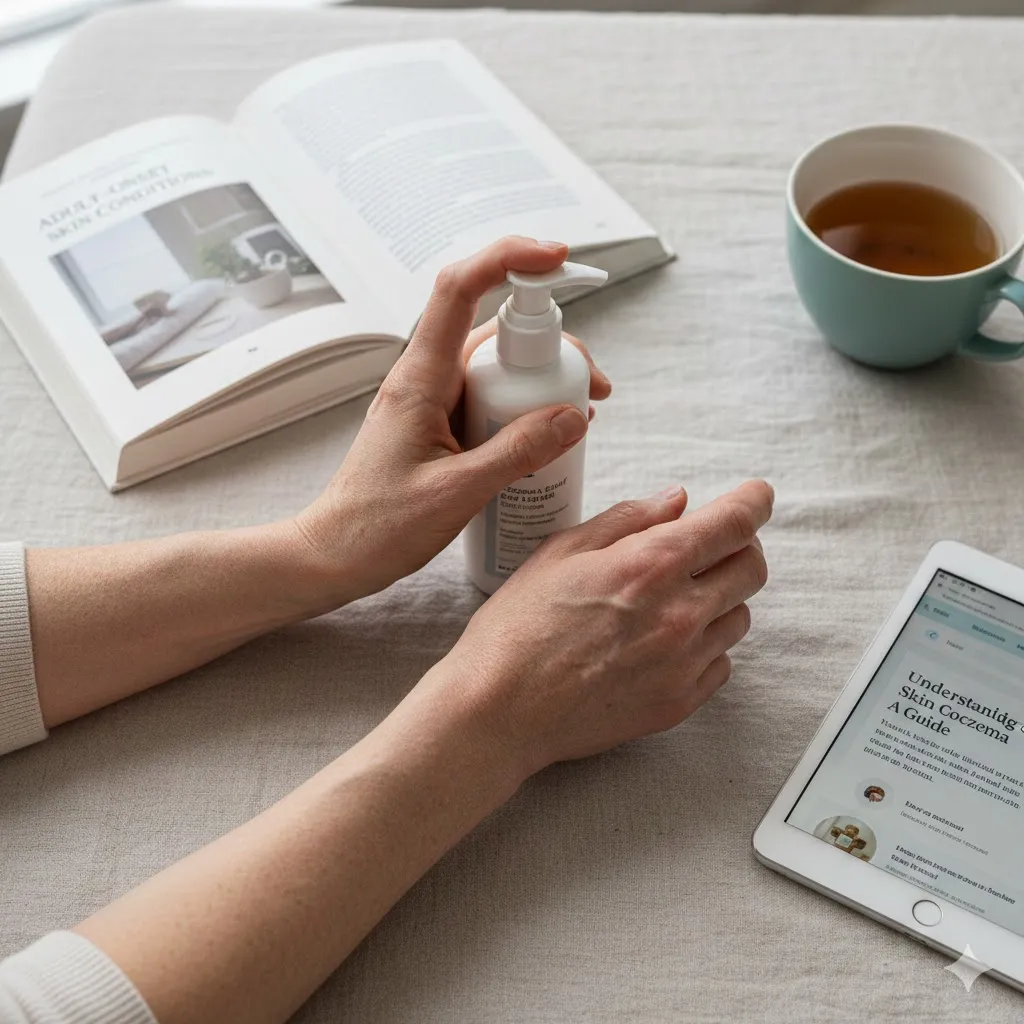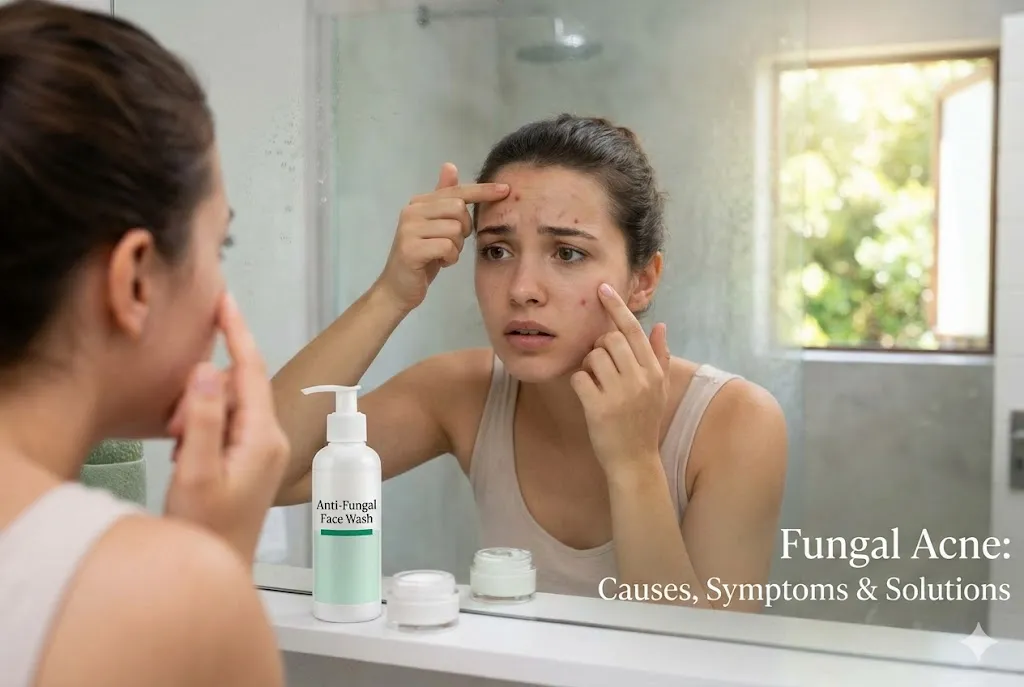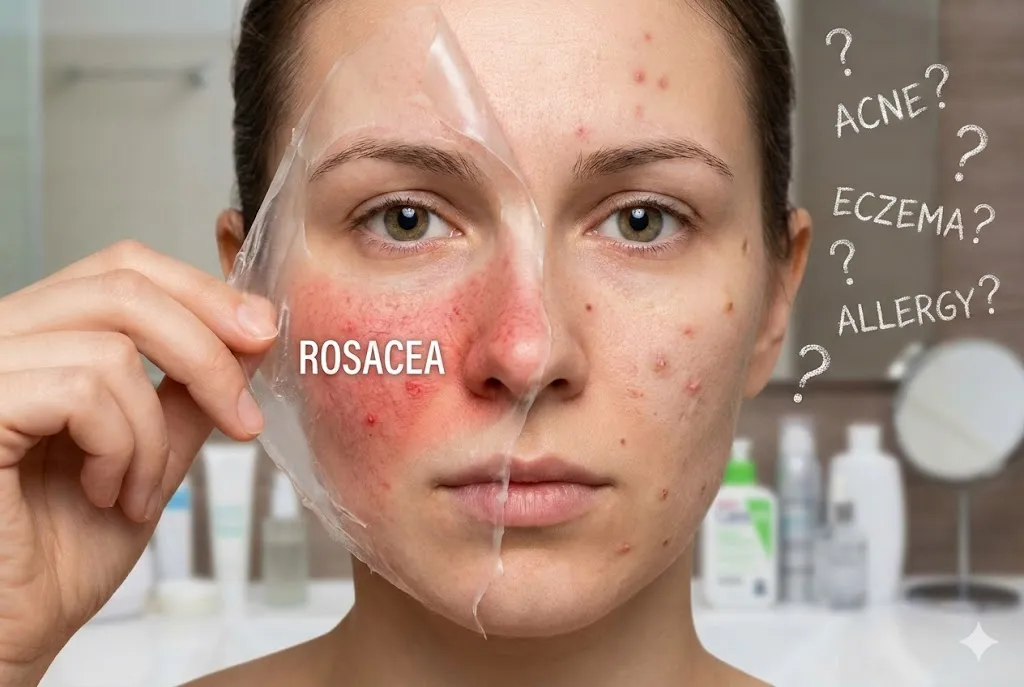Tired of waking up to those annoying red pimples? Fed up with spending money on creams that don’t work? You’re not alone. Millions battle acne daily, but harsh chemicals aren’t the only answer. Nature offers powerful fixes too. There are effective home remedies for pimples that deliver results.
Simple, affordable, and backed by generations of wisdom—these solutions use ingredients from your kitchen. Ready to reclaim your glow? Let’s begin.
10 Dermatologist-approved Home Remedies for Pimples
These simple remedies use natural ingredients to fight acne, reduce inflammation, and prevent future breakouts.
1. Green Tea Rinse
- Why It Works: Packed with antioxidants, green tea reduces redness and fights bacteria that cause acne.
- How to Use:
1. Steep a green tea bag in hot water, and let it cool.
2. Apply with a cotton pad or spray on your face.
3. Rinse after 10 minutes for a refreshing effect.
Pro Tip: Store green tea in a spray bottle and use it as a daily toner!
2. Garlic Paste Spot Treatment
-
Why it works: Allicin in garlic kills acne-causing germs.
-
How to use:
1. Crush 1 clove into a paste,
2. Dab lightly on pimple spots, and leave for 5 minutes
3. Rinse thoroughly to prevent irritation.
Caution: Do a patch test first—garlic is potent and may cause irritation on sensitive skin!
3. Turmeric and Yogurt Mask
-
Why it works: Turmeric heals and fights bacteria, while yogurt soothes and brightens skin.
-
How to use:
1. Mix 1 tsp turmeric with 2 tbsp yogurt into a smooth paste.
2. Apply evenly, leave for 15 minutes, then rinse with lukewarm water.
Pro Tip: Use at night—turmeric may stain the skin temporarily!
4. Aspirin Mask
-
Why it works: Contains salicylic acid, which unclogs pores and dries pimples fast.
-
How to use: Crush 2 aspirin tablets, mix with a few drops of water, apply as a spot treatment, leave for 10 minutes, then rinse.
Did You Know? A study in The Journal of Dermatology Research found that salicylic acid reduces acne inflammation by 45% within 24 hours!
5. Witch Hazel Toner
-
Why it works: Tightens pores, reduces excess oil and balances skin pH.
-
How to use: Soak a cotton pad with pure witch hazel, and gently swipe it over your face twice daily.
Pro Tip: Use alcohol-free witch hazel to avoid skin dryness.
6. Oatmeal & Honey Mask
-
Why it works: Oatmeal absorbs excess oil, while honey has antibacterial properties.
-
How to use: Cook plain oatmeal, let it cool, then mix it with 1 tsp honey, and apply for 20 minutes. Rinse off gently and pat dry.
7. Lemon Juice Spot Treatment
-
Why it works: Vitamin C in lemon lightens scars, dries out pimples, and kills bacteria.
-
How to use: Dilute fresh lemon juice with equal parts water, dab onto pimples, leave for 10 minutes, then rinse.
Caution: Avoid sunlight after applying lemon juice—it can make your skin sensitive!
8. Cucumber Face Mask
-
Why it works: Cucumber hydrates, cools and reduces puffiness while soothing acne-prone skin.
-
How to use: Blend ½ cucumber into a smooth paste, apply to your face, leave for 15 minutes, then rinse.
Pro Tip: Store cucumber slices in the fridge for a quick cooling effect!
9. Neem and Honey Paste
-
Why it works: Neem fights bacteria, while honey moisturizes without clogging pores.
-
How to use: Grind fresh neem leaves into a paste. Mix with 1 tsp honey, apply for 10 minutes, then rinse.
10. Aloe Vera Gel
-
Why it works: Aloe vera soothes irritated skin, reduces redness, and prevents scarring.
-
How to use: Apply fresh aloe gel directly to pimples, leave on for 20 minutes, then rinse.
Pro Tip: Keep aloe vera gel in the fridge for an instant cooling effect!
What Causes Pimples?
Pimples pop up when pores get clogged with oil, dirt, or dead skin. Hormonal changes, stress, or greasy foods can spike oil production. Genetics also play a role—some skin types are acne-prone.
Pollution and sweat worsen breakouts, especially in India’s humid climate. While triggers vary, one truth stays: unclogging pores and calming inflammation is the key. Now, let’s tackle those zits naturally.
Daily Skincare Routine for Acne Prevention
Consistency beats complexity. Follow this easy routine to keep breakouts at bay:
|
Time |
Step |
Product/Ingredient |
Benefit |
|
Morning |
Cleanse |
Gentle face wash |
Removes oil & dirt |
|
Morning |
Tone |
Witch hazel/rose water |
Shrinks pores |
|
Morning |
Moisturize |
Aloe vera gel |
Hydrates without greasiness |
|
Evening |
Cleanse |
Neem-based cleanser |
kills bacteria |
|
Evening |
Treat |
Turmeric mask (2x/week) |
Reduces breakouts |
|
Night |
Moisturize |
Light, non-comedogenic cream |
Prevents clogged pores |
Pro Tip: Never skip moisturizer—dry skin produces MORE oil!
Additional Tips and Tricks for Acne Prevention
To keep your skin clear, it's important to follow everyday habits that prevent acne. These simple steps can help manage oil, dirt, and factors that cause breakouts.
-
Wash pillowcases weekly to avoid bacteria buildup.
-
Use oil-free sunscreen—sun exposure worsens acne.
-
Drink 8 glasses of water daily to flush toxins.
-
Avoid touching your face; hands transfer germs.
-
Swap sugary snacks for nuts and fruits.
-
Exercise regularly to balance hormones.
-
Sleep 7-8 hours—stress fuels breakouts.
-
Steam face weekly to open pores.
-
Always remove makeup before bed.
Skincare Habits That Could Worsen Your Pimples
Sometimes, the things we do to care for our skin can make acne worse. Being aware of these common mistakes can help you avoid increasing your acne problems.
-
Overwashing strips natural oils, triggering more oil production.
-
Popping pimples spreads bacteria and causes scars.
-
Using heavy creams clogs pores.
-
Skipping moisturizer dries the skin, increasing oil.
-
Over-exfoliating irritates and inflames skin.
-
Sharing makeup tools transfer acne-causing germs.
-
Applying toothpaste dries but irritates skin.
-
Using expired products breeds bacteria.
-
Ignoring diet—greasy foods spike breakouts.
When to See a Dermatologist
There are situations when home treatments aren’t enough to tackle acne. Knowing when to seek professional help can be crucial for your skin health and self-confidence. Consider visiting a dermatologist if:
-
Cystic acne (large, painful bumps under the skin).
-
Over-the-counter products fail after 6 weeks.
-
Acne leaves dark scars or pits.
-
Breakouts spread to the chest/back.
-
Skin feels burning or excessive dryness.
-
Hormonal issues (e.g., PCOS) suspected.
-
Allergic reactions to home remedies.
-
Acne affects self-esteem or mental health.
-
You need prescription-strength treatments.
Don’t wait too long—early treatment prevents long-term damage!
Final Thoughts
Home remedies for pimples can be effective, but it's important to be patient as they often take time to show results. To get the best outcome, combine these remedies with a consistent skincare routine. If you're still facing issues with acne after trying these methods, it might be a good idea to consult a dermatologist. They can provide customized treatments suited specifically for your skin type.
If you found these tips helpful, consider sharing them with friends who are also trying to manage their acne. Let's work together to support each other and embrace clear, confident skin.
Frequently Asked Questions
Can drinking milk cause pimples?
Yes! Dairy can spike insulin levels, increasing oil production. Try almond or soy milk.
Does stress trigger acne?
Absolutely. Stress releases cortisol, which boosts oil and clogs pores.
Is coconut oil good for acne-prone skin?
No. It’s comedogenic—blocks pores. Use lighter oils like jojoba.
Can I use baking soda for pimples?
Avoid. It disrupts skin’s pH, causing irritation.
How long do home remedies take to show results?
Give it 4-6 weeks. Consistency is crucial.
Are pimples worse during periods?
Yes. Hormonal shifts increase oil. Use salicylic acid pre-cycle.
Can sweat cause breakouts?
Yes. Shower post-workout; sweat mixes with oil, clogging pores.
Reviewed by







